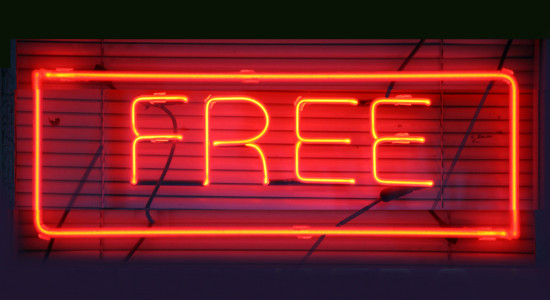You might think that if you don’t pay for something, but are unhindered in using it, it’s not costing you anything. It is with this in mind I have to disagree when someone tells me some software is free.
As a non-digital example you might consider the air, which doesn’t cost you anything and you have unhindered access to it. So you might presume that the use of some software is the same, especially things like web browsers which you can freely download and install for free – but it depends on what you are giving up to use that software.
For instance, if you look at Google Chrome, you install it for free but you give Google a way of gathering data about your browsing habits; essentially you sign up to being guinea pigs for Google. Furthermore, at any time, Google can withdraw that software; they have no reason to support your use or any legal obligation to improve it. There’s nothing inherently wrong with that, but you need to be aware of just how free that software is. In addition to owning a free piece of software, Google prevent you from seeing inside it. They have a commercial and legal right to protect its software from competition and illegal use. This is where free software gets really hard to decipher.
If I buy a sandwich, I can look inside it and add mayonnaise if I like. If I buy a car, I can repair a headlight myself to continue using the car at night. If I buy a book, I can make notes inside it and use it for purposes unintended by the publisher: I could use it as part of a stack of items to prop up a couch, for example. Software isn’t like this at all.
Remember those EULAs you’ve signed? They’re End User License Agreements, and you must “Accept” or “Agree” to them in order to install most software – even the free bits. They often protect the software company from people making claims of damages if the software fails to work as expected. they might prevent you from amending the software and profiting from resale. Essentially they’re saying you agree that you can’t add mayonnaise to your free sandwich, repair your free car’s headlamp or use your free book to prop up your couch. So you’re giving away your consumer and ownership rights, which you’re quite happy to do. So it’s a little less free again.
In opposition, there is a movement of Free and Open Source Software (FOSS) which differentiates itself from this “Closed Source” EULA protected software, by an easy distinction: It’s Free as in Free Speech, not Free as in Free Beer. The FOSS movement doesn’t prevent you from doing anything from their software, however you intend to use it. They just hope you’ll use it and enjoy it, maybe even become involved in the project and make things better.
